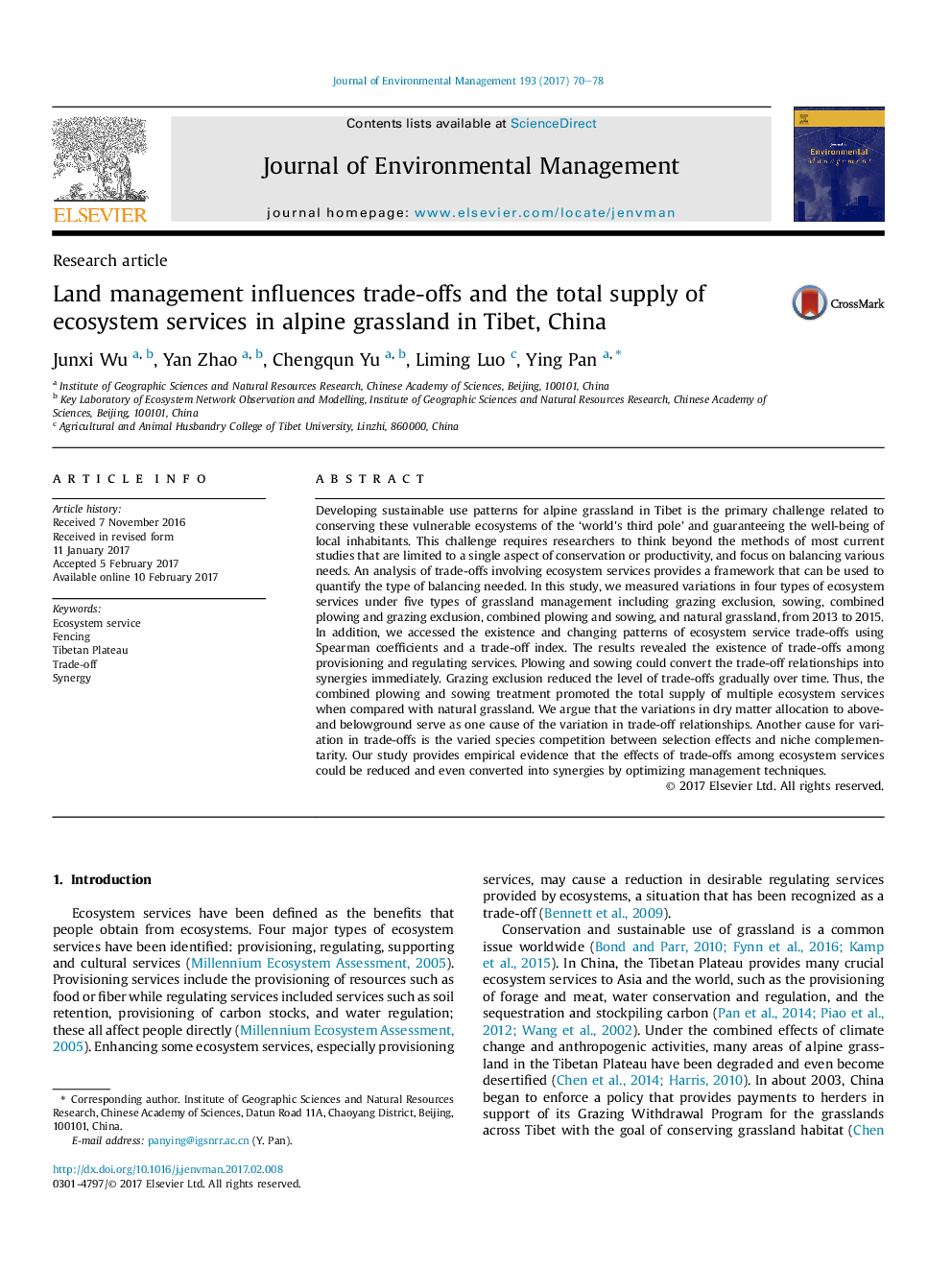| Article ID | Journal | Published Year | Pages | File Type |
|---|---|---|---|---|
| 5116811 | Journal of Environmental Management | 2017 | 9 Pages |
â¢Grassland managements varied the trade-offs between ecosystem services.â¢Plowing and sowing converted the trade-off relationships into synergies immediately.â¢Grazing exclusion reduced the level of trade-offs gradually over time.â¢Variation in trade-offs relationships is because the varied dry matter allocation.â¢Another cause is the varied mechanism of species competition.
Developing sustainable use patterns for alpine grassland in Tibet is the primary challenge related to conserving these vulnerable ecosystems of the 'world's third pole' and guaranteeing the well-being of local inhabitants. This challenge requires researchers to think beyond the methods of most current studies that are limited to a single aspect of conservation or productivity, and focus on balancing various needs. An analysis of trade-offs involving ecosystem services provides a framework that can be used to quantify the type of balancing needed. In this study, we measured variations in four types of ecosystem services under five types of grassland management including grazing exclusion, sowing, combined plowing and grazing exclusion, combined plowing and sowing, and natural grassland, from 2013 to 2015. In addition, we accessed the existence and changing patterns of ecosystem service trade-offs using Spearman coefficients and a trade-off index. The results revealed the existence of trade-offs among provisioning and regulating services. Plowing and sowing could convert the trade-off relationships into synergies immediately. Grazing exclusion reduced the level of trade-offs gradually over time. Thus, the combined plowing and sowing treatment promoted the total supply of multiple ecosystem services when compared with natural grassland. We argue that the variations in dry matter allocation to above- and belowground serve as one cause of the variation in trade-off relationships. Another cause for variation in trade-offs is the varied species competition between selection effects and niche complementarity. Our study provides empirical evidence that the effects of trade-offs among ecosystem services could be reduced and even converted into synergies by optimizing management techniques.
